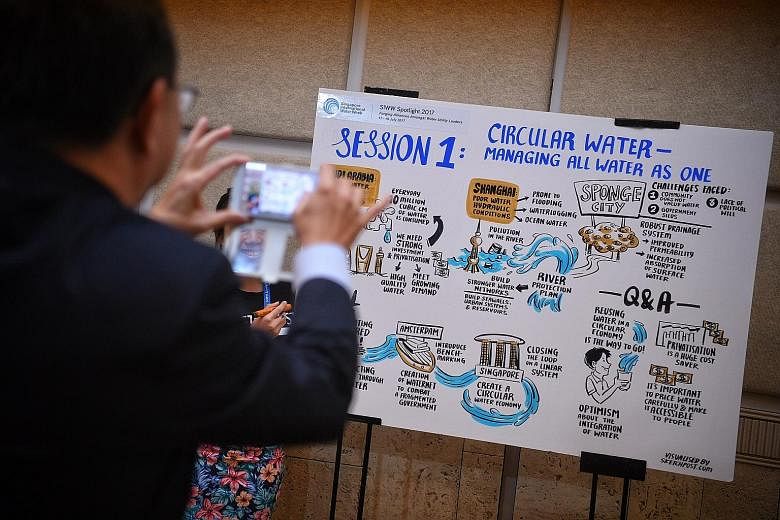Singapore took more steps yesterday towards water security with the launch of a $2.5 million water research facility, and the inking of two bilateral agreements to facilitate the sharing of knowledge and expertise in the water sector.
The facility, which will open in Jurong next January, will be run by Japanese firm Kurita Water Industries and is supported by PUB and Singapore's Economic Development Board. It will focus on developing technologies for desalination and the recycling of waste water.
These areas are relevant for Singapore, whose four national taps comprise water from desalination (converting sea water to potable water), Newater (treated used water), water from its reservoirs, and imported water from Malaysia.
The launch of the facility was announced yesterday by Minister for the Environment and Water Resources Masagos Zulkifli during the Singapore International Water Week (SIWW) Spotlight event, held ahead of the biennial SIWW water conference in July next year.
During the event, PUB chief executive Ng Joo Hee signed two agreements with water firms in Saudi Arabia and Australia to promote research and collaboration on water technologies.
The first agreement, signed between PUB and Saudi Arabia's Saline Water Conversion Corporation, will support research and innovation in areas such as desalination, leak detection and energy reduction. The other agreement, between PUB and Western Australia's Water Corporation, will boost collaboration in the fields of urban water supply, waste water management and innovation.
Another issue that will be looked at under the Singapore-Australia partnership is climate change adaptation, which is becoming increasingly important in the face of changing weather patterns and erratic rainfall.
In October last year, for example, water levels at Linggiu Reservoir, Singapore's main source of water in Malaysia, dropped to a historic low of 20 per cent.
This was after a dry spell in 2014 caused water levels there to drop steadily. Recent rain has helped boost water levels to the current 42 per cent.
The announcements come on the back of a water price hike, the first phase of which came into effect this month. When the next phase is implemented in July next year, water prices will be raised by 30 per cent in all.
Mr Masagos told the audience that a price increase is never welcome. However, the price revision - Singapore's first in 17 years - is necessary, he said, as Singapore has to remain financially sustainable to enable continual investments in water infrastructure and proper maintenance.
"At the same time, we believe in the importance of right-pricing water, so users appreciate the scarcity value and the true cost of the water they are using," said Mr Masagos.


